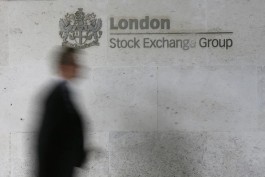Bank stocks have fluctuated over the past week after recovering from their crash earlier in the year. A prominent analyst warned that US banks will face a series of regulatory challenges over the next few months.
Bank stocks, after rallying for the better part of the month since hitting their lowest levels in more than two years, have once again found themselves under pressure from the Federal Reserve, which is looking to sharply increase capital requirements for the big banks, as well as the results of its stress tests. The Federal Reserve annually for banks, the results of which are scheduled to appear next Wednesday.
Two main indicators of banks decline
KBW Bank Index and KBW Regional Banking Index of banks fell by at least 5% last week, their worst weekly performance since early May, when JPMorgan Chase & Co agreed to take over First Republic Bank after its collapse.
Mike Mayo, an analyst at Wells Fargo, wrote in a note to clients: “Bank stocks fell on 3 problems: the banking crisis after the collapse of (Silicon Valley Bank), the recession, and the actions of regulators that come amid expectations that 3 waves of regulatory tightening will hit banks this summer.” and may extend into the fall.
US banks tightened lending restrictions in the first quarter
Mayo believes that the upcoming stress tests are likely to be the least impactful among the three waves of regulation, as bank stocks are expected to face them this summer, and he does not believe that any bank will fail these tests despite their difficulty compared to previous tests. In contrast, he says, investors should shift their focus to the larger impact of the Basel Committee's new rules on banking supervision and additional Fed supervision following the collapse of the Silicon Valley bank in March, which sparked turmoil throughout the banking sector and global markets.
Increased capital requirements
The May warning followed testimony from Jerome Powell, the Federal Reserve chairman, in which he told members of the Senate Banking Committee that the capital requirements of the largest US banks could increase by about 20%. Earlier, FDIC President Martin Greenberg said banks with assets of $100 billion or more would face new rules for allocating more capital requirements in the event of unexpected stress as part of the long-awaited Basel III reforms.
Mayo concluded: Given that the stress test scenario does not address the problem of deposits (Silicon Valley Bank) or stagflation; Regulators are likely to require more capital, while increasing overall loss-absorbing capacity, and enhancing liquidity and supervision.







































